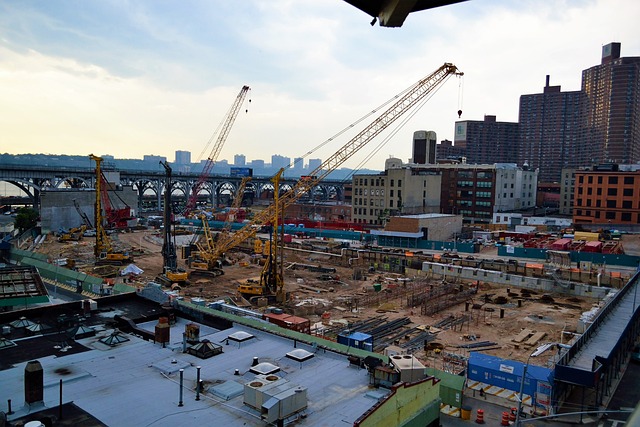If you’re planning on getting any construction work done on your property, you must know what construction insurance you need for your recycling equipment. This type of insurance protects you financially if something goes wrong during construction. There are a few different construction insurance types, each with specific benefits and requirements. In this article, we’ll outline the different kinds of construction insurance and explain which one is best for you. Stay tuned!
What are construction project risks?
Construction project risks can include potential damage to property, injury to employees, and even death. Different insurance policies may cover specific risks depending on the construction project being undertaken. For example, general contractors or subcontractors who work with potentially hazardous materials may be required to carry workers’ compensation insurance. This coverage will protect employees from any physical injuries that may occur during a job.
Property owners who live in danger zones near active construction sites may also want to consider purchasing earthquake insurance. This policy will help safeguard your assets against damage caused by an earthquake (or other seismic events).
In addition, some companies provide specialized protection for businesses in the construction industry. Corporate liability insurance provides coverage for personal injury and property damages caused by accidents at worksites affiliated with the company – regardless of whether those accidents were caused intentionally or accidentally. And finally, business interruption Insurance covers losses incurred when your business is closed due to unforeseen circumstances such as natural disasters or labor strikes/lockouts.
If you have any questions about which risks your specific insurance policy covers or if you need clarification on whether your coverage will apply to a particular situation, feel free to speak with a representative from your policy company.
What is construction insurance?
Construction insurance is a type of coverage businesses use to protect themselves from accidents and other unforeseen events while building or modifying their property. It can help cover costs associated with lost income, damage to property, legal expenses, and more.
Businesses must understand the types of excavation contractor insurance available to them to choose the best policy suited for their specific needs. There are several different types of construction insurance available today, including general liability insurance, workers’ compensation/death benefits coverage, contractual protection (covering defects in materials and craft), evacuation/relocation coverage, retroactive reimbursement policies (for fixing problems after the fact), loss address confidentiality programs (so customers don’t know where the damages occurred), and more.
There are also several optional features you may want to include in your policy – such as umbrella clauses that provide additional protection should certain risks not be covered by your primary policy options. By understanding what construction insurance covers and how it works, you can ensure your business is fully protected during any unexpected event.
What are the primary types of insurance for construction projects?
Several different kinds of insurance can be useful for construction projects. Some common types of insurance include property, liability, workers’ compensation, and contract.
Property Insurance:
This type of insurance protects the owner(s) of the building or structure from damage caused by accidents or theft. It also covers any costs associated with repairing or replacing damaged property.
Liability Insurance:
This type of insurance covers you financially if someone else is responsible for damages to your property, injuries sustained by employees while on your job site, or legal fees related to any lawsuits that may arise during a construction project.
Workers’ Compensation:
Workers’ compensation provides coverage for injury and death suffered as a result of an accident at work. Typically this coverage is mandatory in most states, but it can vary depending on the specific state laws and regulations involved. Workers’ compensation also includes benefits such as medical expenses, lost wages due to illness or injury, and burial costs in case of death at work.
Contractors typically carry general liability (umbrella) policies and workers’ compensation policies in addition to other types specific to their industry/trade. So make sure you have the right coverage tailored specifically to your needs.
What type of insurance do I need for my construction project?
You may need a few different types of insurance for your construction project. Here are two examples: general liability and property damage/collateral.
General liability coverage protects you and your employees from legal action that might result from injuries or accidents during your construction project. This type of insurance also covers damages to public or private property and wrongful accusations made against you by third parties.
Property damage/collateral coverage is designed to protect your assets (property, equipment, etc.) from loss due to accidental events related to the construction project. This type of insurance will cover lost revenue due to missed work performances caused by weather conditions, vandalism, or other incidents. It can also provide financial assistance in case of lawsuits filed against you by injured workers or customers offended by inappropriate behavior on-site during the construction process.
How much does construction insurance cost?
Construction insurance can protect your business from unexpected expenses that stem from a construction project. Coverage includes property damage, personal injury, and loss of equipment or inventory. There are a few factors to consider when calculating the cost of construction insurance:
-The type of coverage you need – general liability, workers’ compensation, automobile liability, and commercial property policies may all include provisions for construction projects.
-Your geographical area – certain states have laws that increase the amount you must pay for construction liabilities.
-The complexity of the project – if there is any chance that the project will go wrong (for example, if it’s a high-rise building), you’ll likely want more coverage than if it’s something simple like renovating an existing house.
There are also optional features such as earthquake fault Insurance (EFI) and endonning services, which can help increase your coverage even further. Ask your agent what types of protection are best for your business.
